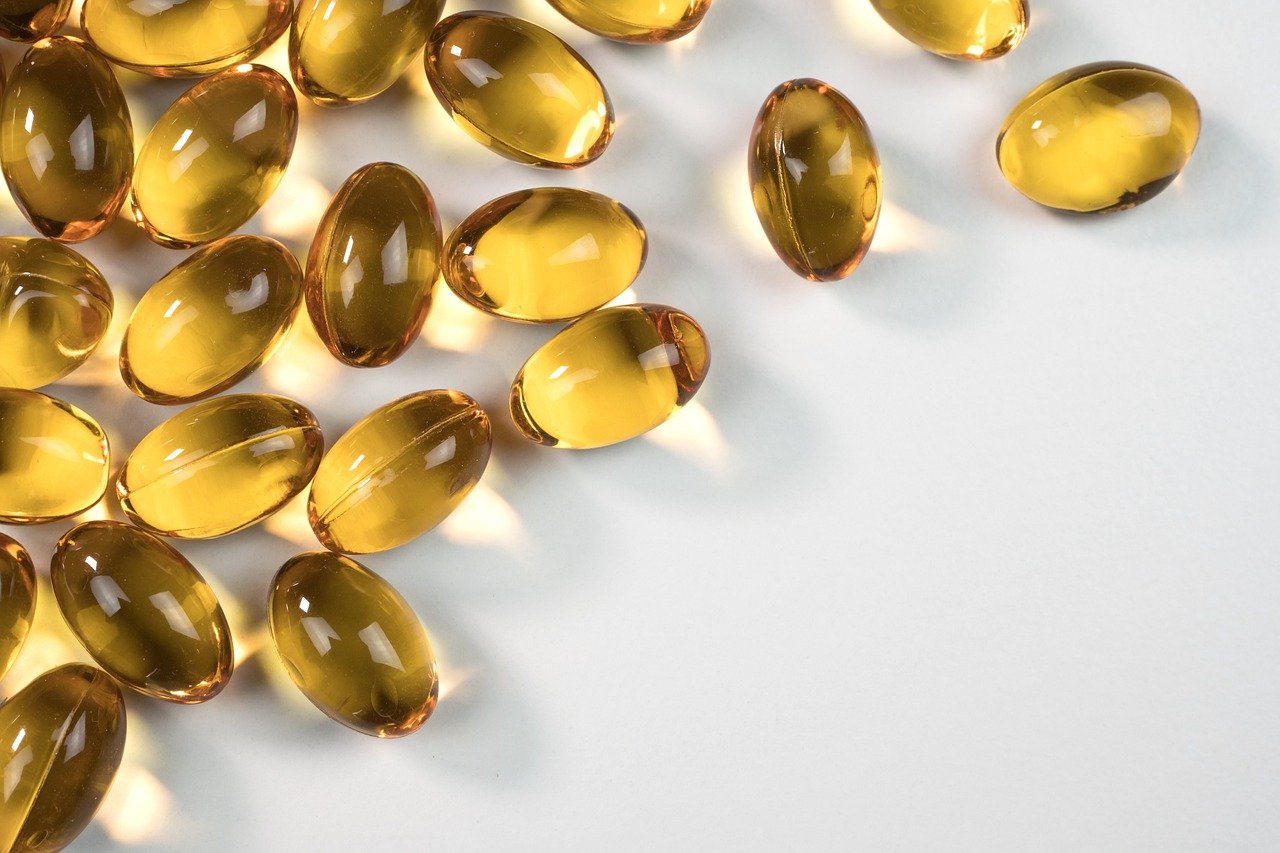Whether you’re pregnant or currently breastfeeding, your health and the well-being of your baby are of utmost importance. With so much information out there, it’s natural to wonder if it’s safe to take supplements during this crucial phase of your life. In this article, we’ll explore the topic and shed light on whether or not it’s advisable to incorporate supplements into your routine.
Importance of Nutritional Supplements during Pregnancy and Breastfeeding
Pregnancy and breastfeeding are crucial periods in a woman’s life when her body has increased nutritional demands. Proper nutrition during these phases is essential not only for the mother’s health but also for the development and well-being of the baby. Nutritional supplements play a vital role in meeting these increased nutritional needs, supporting fetal development, and aiding postpartum recovery.
Meeting Increased Nutritional Demands
During pregnancy and breastfeeding, a woman’s body requires higher amounts of certain nutrients to support the growth and development of the baby. These increased demands can be challenging to meet through diet alone, making nutritional supplements an important addition to ensure adequate nutrition. Supplements can help provide the necessary vitamins, minerals, and other essential nutrients that may be lacking in regular meals.
Supporting Fetal Development
The unborn baby relies solely on the mother’s nutrient intake for its growth and development. Taking nutritional supplements can provide essential nutrients such as folic acid, iron, calcium, omega-3 fatty acids, and vitamin D, which are crucial for the baby’s development. These nutrients are involved in the formation of the baby’s brain, bones, immune system, and overall growth.
Aiding Postpartum Recovery
After giving birth, a woman’s body goes through significant changes, and the recovery process requires proper nutrition. Nutritional supplements can play a role in supporting postpartum recovery and ensuring the mother’s well-being. Supplements with iron help replenish iron stores, which may be depleted during pregnancy and delivery. Probiotics can aid in gut health, promoting digestion and immune function. Omega-3 fatty acids contribute to mood stabilization and reducing the risk of postpartum depression.
Considerations before Taking Supplements
Before incorporating any nutritional supplements into your routine during pregnancy or breastfeeding, it is essential to consider a few factors. Consulting with a healthcare provider is vital to ensure the safety and appropriateness of the supplements. Assessing individual nutritional needs and identifying potential deficiencies is crucial to determine which supplements are necessary. Additionally, evaluating the safety of the supplements and potential interactions with medications is important for the well-being of both the mother and the baby.
Consulting with a Healthcare Provider
It is crucial to consult with a healthcare provider before taking any supplements during pregnancy or breastfeeding. They can provide personalized advice and recommendations based on your specific needs and circumstances. Your healthcare provider will consider your medical history, current health, and any potential risks associated with taking certain supplements. They can also guide you on the proper dosage and duration of supplementation for optimal results.
Assessing Individual Nutritional Needs
Every woman’s nutritional needs vary, depending on factors such as age, weight, overall health, and stage of pregnancy or breastfeeding. Assessing your individual nutritional needs is important to determine which supplements are necessary for your specific situation. Blood tests can help identify any deficiencies or imbalances and guide you towards the right supplements to address these needs effectively.
Identifying Potential Deficiencies
Certain nutrients are commonly deficient during pregnancy and breastfeeding, making supplementation essential. For example, folic acid plays a crucial role in preventing birth defects, particularly in the early stages of pregnancy. Iron deficiency is also common among pregnant women due to increased blood volume and the baby’s iron needs. Identifying potential deficiencies helps target supplementation to ensure these nutrient gaps are adequately addressed.
Evaluating the Safety of Supplements
Safety is paramount when considering supplements during pregnancy and breastfeeding. Not all supplements are safe for consumption during these periods, as some may pose risks to the mother or the baby. Evaluating the safety of supplements involves understanding their potential side effects, checking for any contraindications, and ensuring they do not interact negatively with any medications you may be taking. Consulting with a healthcare provider and thoroughly researching each supplement’s safety profile is crucial.

Recommended Supplements for Pregnant Women and Breastfeeding Mothers
Several nutritional supplements are commonly recommended for pregnant women and breastfeeding mothers due to their importance in supporting maternal and fetal health. These supplements include:
Folic Acid
Folic acid, also known as folate, is a crucial nutrient during pregnancy. It plays a significant role in preventing neural tube defects in the developing baby’s brain and spinal cord. Folic acid is commonly recommended even before conception and throughout the first trimester of pregnancy.
Iron
Iron is vital for maintaining healthy red blood cells and preventing iron deficiency anemia, especially during pregnancy when the body’s iron requirements increase. Iron supplementation may be necessary for pregnant women who are at risk of or diagnosed with iron deficiency.
Calcium
Calcium is essential for the baby’s bone development, muscle function, and nerve signaling. Pregnant women need sufficient calcium intake to support the growing baby’s needs and to prevent the mother’s bones from becoming depleted. Adequate calcium intake can be achieved through a combination of dietary sources and supplements if necessary.
Omega-3 Fatty Acids
Omega-3 fatty acids, specifically DHA (docosahexaenoic acid), play a crucial role in the development of the baby’s brain and eyes. These healthy fats are found in fatty fish like salmon and can also be obtained through omega-3 supplements derived from algae or fish oil.
Vitamin D
Vitamin D is crucial for calcium absorption and bone health. Many pregnant women and breastfeeding mothers are at risk of vitamin D deficiency, as exposure to sunlight (a natural source of vitamin D) may be limited. Supplementation can help ensure adequate vitamin D levels for both the mother and the baby.
Prenatal Multivitamins
Prenatal multivitamins are specifically designed to meet the nutritional needs of pregnant women and breastfeeding mothers. These supplements typically contain a combination of essential vitamins and minerals that support overall maternal health and the baby’s development.
Supplements to Avoid during Pregnancy and Breastfeeding
While several supplements are beneficial during pregnancy and breastfeeding, some should be avoided or used with caution due to potential risks. These include:
High-Dose Vitamin A
Excessive intake of vitamin A, particularly in the form of retinol, may be harmful during pregnancy and breastfeeding. High doses of vitamin A have been associated with birth defects and other adverse effects. It is essential to avoid supplements that provide more than the recommended daily intake of vitamin A.
Herbal Supplements
Many herbal supplements do not have sufficient evidence regarding their safety during pregnancy and breastfeeding. Some herbs may have potential risks, such as uterine stimulation or hormonal effects, which could harm the baby. It is best to consult with a healthcare provider before taking any herbal supplements during these periods.
Weight Loss and Detox Supplements
Weight loss and detox supplements often contain various ingredients that may be unsafe during pregnancy and breastfeeding. These supplements may contain stimulants, diuretics, or laxatives that can have adverse effects on the mother and the baby. It is best to prioritize nutrition and consult a healthcare provider for safe and effective weight management strategies.

Risks and Potential Side Effects of Supplements
While supplements can provide numerous benefits, it is important to be aware of potential risks and side effects. These include:
Possible Contamination
Some supplements may be contaminated with harmful substances, such as heavy metals or allergens. It is crucial to choose supplements from reputable brands that adhere to quality control and third-party testing protocols to minimize the risk of contamination.
Interactions with Medications
Certain supplements may interact with medications that a pregnant woman or a breastfeeding mother may be taking. These interactions can affect the effectiveness of the medications or cause adverse effects. It is essential to discuss all medications and supplements with a healthcare provider to ensure they are compatible and safe to use together.
Excessive Intake of Nutrients
Taking excessive doses of certain nutrients, such as vitamin E or iron, can have detrimental effects on maternal and fetal health. It is important to follow the recommended dosage guidelines and consult a healthcare provider for personalized advice on the appropriate intake of supplements.
Regulation and Safety of Dietary Supplements
The Food and Drug Administration (FDA) oversees the regulation and safety of dietary supplements in the United States. However, unlike pharmaceutical drugs, dietary supplements do not undergo the same rigorous testing and approval processes. It is important to choose supplements from reputable manufacturers who prioritize quality control and adhere to FDA guidelines.
FDA Oversight
While the FDA does not test or approve individual supplements before they are marketed, they have established guidelines for good manufacturing practices (GMPs). These GMPs ensure that supplements are produced in a safe and consistent manner and undergo quality control measures.
Quality Control
Reputable supplement manufacturers invest in quality control measures to ensure the safety and efficacy of their products. This includes testing raw materials for contaminants, verifying accurate dosages, and conducting stability tests to determine shelf life. Choosing supplements from trusted brands that prioritize quality control can help minimize the risk of unsafe products.
Certifications and Third-Party Testing
Several certifications and third-party testing programs exist to verify the quality and safety of dietary supplements. These independent organizations review manufacturing practices, ingredient quality, and label accuracy. Look for products that have certifications from trusted organizations such as NSF International or USP (United States Pharmacopeia).

Alternatives to Supplements
While nutritional supplements can be beneficial for meeting increased nutritional demands during pregnancy and breastfeeding, there are alternative ways to ensure optimal nutrition:
Optimal Nutrition through Diet
A well-balanced and varied diet can provide most, if not all, of the necessary nutrients during pregnancy and breastfeeding. Focus on consuming nutrient-dense foods such as fruits, vegetables, whole grains, lean proteins, and healthy fats. Including a wide range of food groups can help ensure you are getting a diverse array of nutrients.
Fortified Foods
Fortified foods are products that have additional nutrients added to them during processing. Common examples include fortified cereals, bread, and dairy products. Consuming these fortified foods can help boost your nutrient intake without the need for additional supplements.
Lifestyle Modifications
Making positive lifestyle choices can contribute to overall health and well-being during pregnancy and breastfeeding. Prioritizing regular physical activity, managing stress levels, and getting enough sleep can all impact your body’s ability to safely support the baby’s growth and development. Additionally, avoiding exposure to harmful substances such as tobacco, alcohol, and illicit drugs is crucial for maternal and fetal health.
Supplementing while Breastfeeding
Breast milk provides the essential nutrients for a newborn, but there may be situations where supplements are beneficial:
Transfer of Nutrients in Breast Milk
The composition of breast milk reflects the mother’s nutrient intake. If a mother’s diet is lacking certain nutrients, supplements may be necessary to ensure the baby receives adequate nutrition through breast milk. Common supplements recommended for breastfeeding mothers include vitamin D, omega-3 fatty acids, and calcium.
Choosing Safe Supplements
Just as during pregnancy, it is important to choose safe supplements while breastfeeding. Consult with a healthcare provider to determine which supplements are necessary, safe, and appropriate for your specific situation. A lactation consultant can also provide valuable guidance on breastfeeding-related nutritional needs.
Commonly Encountered Concerns
Some breastfeeding mothers may have concerns about supplements affecting the baby, such as changes in milk taste or potential allergic reactions. However, in most cases, supplements taken within recommended dosages do not cause significant changes in breast milk composition or taste. It is best to discuss any concerns with a healthcare provider to address them appropriately.

Postpartum Supplements for Recovery and Well-being
Postpartum recovery is a vital period for a woman’s physical and emotional well-being. Proper nutrition during this time can help support healing and provide energy. Some supplements that can aid in postpartum recovery and well-being include:
Iron and Hemoglobin levels
During childbirth, women experience blood loss, leading to iron depletion and potential anemia. Supplementing with iron can help replenish iron stores and prevent or treat anemia, promoting overall energy levels and well-being.
Probiotics and Gut Health
Giving birth can impact gut health and digestion. Probiotic supplements can promote the growth of healthy gut bacteria, improving digestion and nutrient absorption. They can also support the immune system and reduce the risk of postpartum infections.
Omega-3 for Mood and Depression
Postpartum mood disorders, such as postpartum depression, are common among new mothers. Omega-3 fatty acids have shown potential in improving mood and reducing the risk of postpartum depression. Including omega-3 supplements derived from fish oil or algae can be beneficial for mental well-being.
Conclusion
Meeting increased nutritional demands during pregnancy and breastfeeding is crucial for the health and development of both the mother and the baby. Nutritional supplements can help bridge the gap between dietary intake and optimal nutrition during these periods. However, it is important to consult with healthcare providers, assess individual nutritional needs, identify potential deficiencies, and ensure the safety of supplements before incorporating them into your routine. Prioritizing a well-balanced diet, fortified foods, and healthy lifestyle modifications can also contribute to meeting nutritional needs. Remember, your healthcare provider can provide personalized advice and guidance for a safe and effective approach to supplementation during pregnancy and breastfeeding.